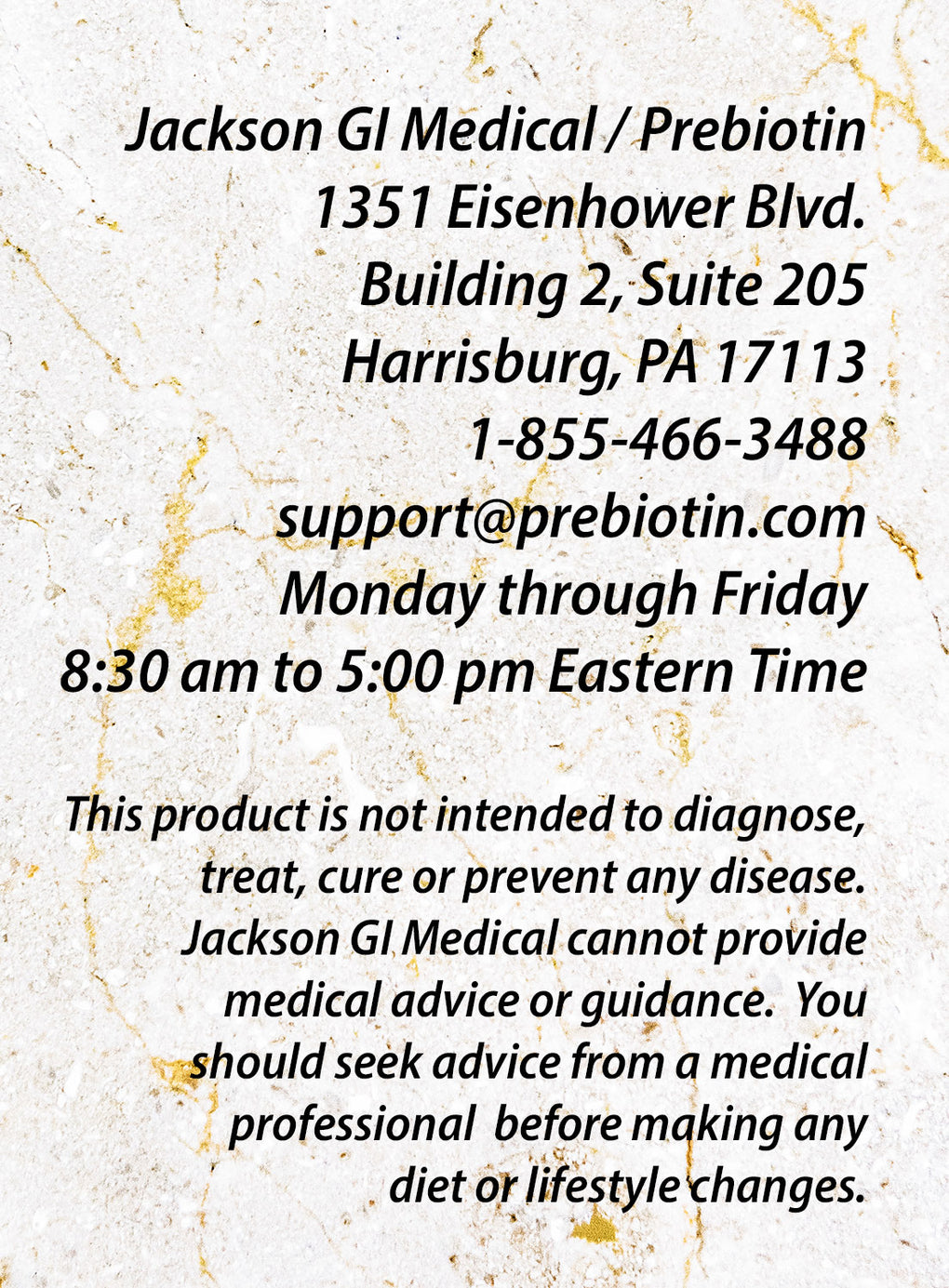New Research Seeks the Impact of Gut Bacteria in Schizophrenia
A University of Maryland Research Study Investigates the Role of Prebiotin on Cognitive Function

You go for a walk and decide which direction to go—you remember that a vicious dog barks at you if you turn left. You go right but notice there is construction that includes the sidewalk. You talk to one of the workers and find out the construction will be done within the week. You’ll come back this way when it is over. You duck into an alley that offers a shortcut back to your house.
You have demonstrated all the aspects of healthy cognition—the brain-based skills you need to function successfully in daily life, from perceiving your environment accurately (noting the choice of walkways), motor skills (turning right instead of left), language and social skills (engaging in a conversation in a way that allows you to gain the information you need), learning (you’ll come back this way after construction is over), and problem solving (you figure out a short-cut to get home).
Simple, right? In schizophrenia, all of these basic “brain-skills” may break down, with devastating consequences. These cognition deficits often make a normal life, with a stable job, friendships, marriage, and even everyday social interactions impossible. About one in 100 of us may develop this incurable disease.
Science has helped with drugs that make symptoms like hallucinations, bizarre language outbursts, and lack of interest in one’s surroundings less severe. Although schizophrenia medications have been refined over the last 50 years, all still have side effects that make some people with schizophrenia reluctant to take their meds. None cure the disease.
Scientists at the University of Maryland are investigating a trailblazing approach that starts in the gut to improve the course of schizophrenia.
A growing body of research demonstrates that when the gut microbiome (the trillions of microbes—bacteria, viruses, and fungi—living in your intestines) is healthy and functioning effectively, the body’s immunity is boosted, and the risk for a wide range of illnesses is reduced. University of Maryland scientists are hypothesizing that the list of conditions impacted by the microbiome may include schizophrenia.
The research team includes Robert W. Buchanan, MD; principal investigator, and Claire Fraser, PhD, both of the University of Maryland School of Medicine; Maureen Kane, PhD, of the University of Maryland School of Pharmacy; and Deanna L. Kelly, PharmD, BCPP, of the School of Medicine. The team has been awarded a collaborative five-year $1.78 million grant, titled “Prebiotic Treatment in People with Schizophrenia,” from the National Institutes of Health’s National Center for Complementary and Integrative Health (NCCIH). The two-pronged study is currently recruiting qualified subjects for the first phase, after which a target start date will be set.
“I am incredibly excited to be able to collaborate with such a distinguished group of investigators on such an important project,” says Dr. Robert W. Buchanan, Director of the Maryland Psychiatric Research Center and Professor of Psychiatry. “The study has the potential to open up an entirely new avenue of treatment development research.”
Examining the Impact of Prebiotin
In the first phase of the study, researchers will examine the impact of Prebiotin® Prebiotic Fiber on a group of patients with schizophrenia (and a control group who does not receive Prebiotin). Numerous studies have demonstrated that prebiotic fiber like Prebiotin is fermented in the colon and increases the activity of butyrate-producing bacteria. Butyrate, a short-chain fatty acid (SCFA), is associated with reduced disease risk and improvements in brain health, including cognition.
Based on these studies, University of Maryland researchers hypothesize that the prebiotic fiber will lead to increased production of butyrate over the 10 days. From a small pilot study, they have demonstrated that that butyrate levels significantly increased within as little as 3 hours of patients consuming Prebiotin.
If the first phase is successful, researchers will conduct a larger outpatient study to determine whether the increase in serum (blood) butyrate levels will be associated with changes in cognitive function, symptoms, and metabolic measures.
“This is path-breaking research that will lead to a better understanding of the role the gut microbiome plays in brain development and disorders,” says Dr. Claire Fraser, Dean’s Endowed Professor and Director of the Institute for Genome Sciences (IGS) at the University of Maryland School of Medicine. “Understanding how butyrate impacts the immune system will give us better insight into treating schizophrenia.”
University of Maryland Study: Understanding Butyrate and Improved Cognition
The researchers are assuming that only 10 days of supplementation with Prebiotin will increase serum (blood) butyrate levels—once this is proven they will complete a second follow-up study to show that this increase corresponds to improvements in cognitive functioning.
Twenty inpatients from the Maryland Psychiatric Research Center (MPRC) at the University of Maryland Baltimore (UMB) School of Medicine will participate. Each person has the diagnosis of schizophrenia or a related disorder and is 18 to 60 years old. All participants are taking antipsychotic medications and have been hospitalized for at least 7 days. To control for gastrointestinal issues, those with diseases like Crohn’s disease, IBS (irritable bowel syndrome), Celiac disease, and others will be excluded. All are able to give consent to participate in the study.
Before the study begins, participants will receive a complete medical history and physical examination, including vital signs: blood pressure, heart and respiratory rates, height and weight, along with a complete metabolic panel. Researchers will also conduct a test for side effects, like bloating, flatulence, or abdominal pain at the start and end of the study.
Participants will be randomly assigned into groups of 10 who either receive 12 grams (4 grams, 3 times a day) of Prebiotin or a placebo for the 10 days. Researchers will collect fasting and 6-hour blood samples from each participant. Day 11 serum butyrate results will be compared with Day 0 before the treatment starts to see if the activity of butyrate-producing bacteria increased and produced changes in serum (blood) butyrate levels.
“Serum butyrate will be one of the key metrics for assessing the biologic effect of the prebiotic treatment,” says Maureen Kane, PhD, UMB Professor of Psychiatry and “In addition to investigating the brain-gut connection in schizophrenia, the study will also be useful in assessing the potential for serum butyrate to serve as peripheral biomarker for cognitive function that may aid in drug development or development of new clinical trial endpoints to facilitate treatment development.”
Are Serum Butyrate Levels Associated with Changes in Cognitive Function?
One of the blood serum tests the group will conduct is to measure the integrity of the gut-blood barrier. In a pilot study, University of Maryland researchers noted that a specific antibody associated with intestinal inflammation was elevated in the 160 participants with schizophrenia compared to 80 healthy controls.
According to the data from this study, gut inflammation and increased gut permeability may decrease the ability of the bundles of nerve fibers, or axons (also called “white matter”), to effectively carry nerve impulses between brain and spinal cord nerve cells (or neurons). If this process of deterioration, called decreased white matter integrity, is in parts of the brain associated with schizophrenia, it may contribute to the cognitive impairments observed in this disorder.
If the 10-day study proves their hypothesis is true and identifies serum butyrate as a potential study target, researchers will then determine whether the possible increase in serum butyrate is associated with changes in cognitive function, psychiatric symptoms, and metabolic measures in a larger outpatient study to test the efficacy of Prebiotin on improving cognitive function. This will involve patients receiving a battery of clinical and neuropsychological assessments before and after treatment.
“We are excited about this opportunity to examine the effects of a prebiotic on outcomes connecting the brain to the gut in people with schizophrenia,” says Deanna L. Kelly, Pharm.D, BCPP, Professor of Psychiatry and Director of the Treatment Research Program at the MPRC, UMB. “Our collaborative project, in conjunction with Spring Grove Hospital Center, provides a unique and well-situated inpatient environment to carry out this innovative work.”
The Link between Your Mental Health and the Bacteria in Your Gut
This type of research is based on the concept that bacteria have an impact not only on our physical health, but also on how our brains function. Most of us are already aware that if we are nervous—meeting a new date or speaking in front of a crowd, for example—our nervous thoughts have an impact on our digestive system—and may have us heading for the bathroom a few times before the big event.
But the process goes both ways. Bacteria in the gut release chemicals that reach the brain and can make us anxious, stressful, or even disorganized in our thoughts and irrational.
To understand how gut bacteria impact mental (and physical) health, it helps to be aware that as much as 80% of our entire immune system is in our gut! Our immune system is comprised of a vast number of diverse microbiota that regulate cellular growth, healing after injury, and maintaining the barrier between the colon and the rest of the body to prevent toxins from moving into the bloodstream.
The right balance of thousands of species of bacteria that live within the gut is critical to the proper functioning of the gut’s immune system. Large colonies of undesirable bacteria release chemicals that can lead to inflammation, which weakens the gut wall. When the intestinal wall allows toxins to seep into the body from the gut, (“leaky gut syndrome”), these toxins may be causing an immune system response—inflammation, which can impact mental health.
The Link between Psychiatric Illness and Gastrointestinal Symptoms
In fact, psychiatric illnesses are often accompanied by gastrointestinal symptoms, an indication that dysbiosis (imbalance of bacterial colonies in the microbiome) may have an impact on a wide range of brain-related diseases.
For example, studies have found links between the composition of the microbiome and symptoms of autism. Researchers have found that from 23 to 70% of children with autism have gastrointestinal symptoms. Furthermore, the severity of the GI symptoms is associated with the severity of the mental health symptoms.
Studies have linked the deterioration of motor skills in Parkinson’s disease to changes in the composition of gut bacterial populations. Equally compelling are studies that strongly link reduced gut microbiota richness and diversity and major depression.
This latest University of Maryland research study is just another in a long line of studies that seeks to explore the link between the bacteria in our gut and how our brains function.
Why Do Researchers Choose Prebiotin?
The University of Maryland researchers chose to use Prebiotin® Prebiotic Fiber as the supplement that can help to “manipulate” the gut microbiome and increase butyrate production. Other than donating the product used, Prebiotin has no control or oversight in the research process.
Prebiotin has been used in numerous scientific studies, including NIH studies on end stage kidney disease, peritoneal dialysis, inflammatory bowel disease, obesity—and now schizophrenia. As a host of new prebiotic fiber products hits the market, Prebiotin® Prebiotic Fiber remains the most researched fiber.
What benefits does Prebiotin offer?
Studies have shown that Prebiotin ferments in the colon and nurtures beneficial bacteria like bifidobacteria and lactobacilli. As these highly desirable bacteria flourish, they generate more of beneficial short chain fatty acids (SCFAs)—such as butyrate, propionate, and acetate.
Research in the last two decades has shown that short chain fatty acids (SCFAs), especially butyrate, can reduce inflammation that is at the heart of so many of our health conditions, from cancer to arthritis—and brain diseases like depression and even dementia. Schizophrenia may now be part of that list.
To treat inflammation leading to disease, researchers now understand that we need to find ways to increase desirable bacteria in our gut microbiome. A healthy mix of bacteria is able to strengthen the gut lining so that critical nutrients are absorbed more effectively,* boosting the immune system.
Here is where Prebiotin® Prebiotic Fiber can play an important role. Research studies show that the prebiotic fiber in Prebiotin nourishes beneficial bacteria that help to reduce inflammation leading to leaky gut syndrome. With daily supplementation, Prebiotin can help to strengthen the gut blood barrier so toxins from the digestive process don’t leak into the blood stream, which causes the inflammation that can lead to disease.
Not only are Prebiotin benefits backed by research; Prebiotin is often the choice of researchers because it is easily digested, easy to use (just sprinkle on any food or into drinks), and is derived without chemical processing. Prebiotin contains both oligofructose and inulin (called OEI) derived 100% from chicory root, one of the richest sources of prebiotic fiber.
With only one ingredient, Prebiotin is often selected because researchers don’t have to worry about a multitude of ingredients that make it difficult to determine exactly what is causing a therapeutic effect.
* Some researchers suggest that specific neural disturbances leading to schizophrenia may be corrected with specific nutrients, including omega 6, DHA, B12, D, C, and others. A healthy microbiome is necessary so that the nutrients can be efficiently absorbed.
A Future of Treating Disease by Changing the Gut Microbiome
Based on earlier findings that link gut bacteria composition, butyrate, and brain function, the researchers at the University of Maryland are excited about furthering research that seeks to manipulate the gut microbiome for therapeutic benefits in patients with schizophrenia.
Finding new treatments that can reduce the symptoms of schizophrenia without serious side effects is especially critical because of the profound negative impact the disease has on the life of the individual and on society as a whole. (see “The Devastating Impact of Schizophrenia” at end of blog).
“We know the importance of the microbiome and the immune system,” says Greg Cooper, Director of Business and Product Development for Prebiotin. “We hope this research will lead to better treatments for those suffering from schizophrenia and other brain diseases that affect cognition.”
The Devastating Impact of Schizophrenia
Schizophrenia is a life-long disease with no cure. Certain medications can help relieve symptoms of schizophrenia such as delusions, hallucinations, and disorganized thinking by blocking certain chemical receptors in the brain.
The heartbreak of schizophrenia is that it emerges at the cusp of adulthood and often permanently impedes the individual’s ability to achieve the normal milestones of adulthood, from a satisfying career to long-term love relationships and stable family life.
Men are typically diagnosed earlier, in late adolescence to their early twenties. Women often develop symptoms somewhat later, in their early twenties to the early thirties.
Some statistics on the societal impact of this disease:
- About 4 people per 1,000 develop the disease.
- Tremendous health, social, and economic burdens associated with schizophrenia, not only for individuals with the disease, but also for families, caregivers, and the wider society.
- It is one of the top 25 leading causes of disability worldwide.
- The World Health Organization estimated that direct costs of schizophrenia in Western countries range from 1.6% to 2.6% of total health care expenditures, which in turn account for between 7% and 12% of the gross national product (GNP). (In 2017, all healthcare expenditures in the US comprise 17% of GNP.)
- Because individuals with the illness often cannot maintain full-time jobs, families and society face the difficult task of supporting affected individuals for a lifetime.
- Many who need residential treatment cannot obtain it and seek shelter in the street or end up as prisoners. It is estimated that about 16% of the prison population is severely mentally ill.
Society has a long way to go to provide adequate inpatient and outpatient programs that provide a safe refuge, care, rehabilitation, and meaningful activities for individuals with schizophrenia and other severe mental illness. Without societal support, the most vulnerable people will continue to face homelessness and incarceration. This reality adds even greater urgency to research that has the potential to reduce the devastating impact of brain diseases like schizophrenia.
Please note that this blog does not state or imply any endorsement or advertisement of any product(s) or service(s) by the University of Maryland project research team, including scientists at the University of Maryland School of Medicine’s (UMSOM) Maryland Psychiatric Center (MPRC), the Institute for Genome Sciences (IGS), and the University of Maryland School of Pharmacy (UMSOP).
Please click through to the University of Maryland press release, for more information.
References
- Belkaid Y & Hand TW. Role of the microbiota in immunity and inflammation. Cell. 2014 Mar 27;157(1):121-41. doi: 10.1016/j.cell.2014.03.011.
- Burassa M, Alim I, Bultman SJ, Ratan RR. Butyrate, neuroepigenetics and the gut microbiome: Can a high fiber diet improve brain health? Neuroscience Letters. 2015 June 20; 625: 56-63.
- Chong HY, Teoh SL, Wu DB-C, et al. Global economic burden of schizophrenia: a systematic review. Neuropsychiatr Dis Treat. 2016; 12: 357–373. Published online 2016 Feb 16.
- Corbett, Adrian. “7 Huge Reasons to Avoid Processed Foods,” Gut Geek (blog), July 22, 2018, .
- Fasano A & Shea-Donohue T. Mechanisms of disease: the role of intestinal barrier function in the pathogenesis of gastrointestinal autoimmune diseases. Nat Clin Pract Gastroenterol Hepatol. 2005 Sep;2(9):416-22.
- Holscher HD. Dietary fiber and prebiotics and the gastrointestinal microbiota. Gut Microbes. Published online 27 Feb 2017;(8): 172-184.
- JPND research. Parkinson’s Disease Linked to Gut Microbiome. March 27, 2017. Accessed December 14, 2018.
- Li Q, Han Y, Dy AB, Hagerman RJ. The Gut Microbiota and Autism Spectrum Disorders. Front Cell Neurosci. 2017; 11: 120. Published online 2017 Apr 28.
- Looijer-van Langen MAC & Dieleman LA. Prebiotics in Chronic Intestinal Inflammation. Inflamm Bowel Dis. 2009 Mar; 15(3): 454–462.
- Mahadik SP & Evans DR. Is schizophrenia a metabolic brain disorder? Membrane phospholipid dysregulation and its therapeutic implications. Psychiatr. Clin North Am. 2003 Mar;26(1):85-102.
- Morrison J. Study to Explore Brain and Gut Ties in Schizophrenia. University of Maryland at Baltimore website. Updated January 11, 2019.
- National Institute of Health. Schizophrenia. Last updated: May 2018.
- Rogers GB, Keating DJ, Young RL, et al. From gut dysbiosis to altered brain function and mental illness: mechanisms and pathways. Mol Psychiatry. 2016 Jun; 21(6): 738–748. Published online 2016 Apr 19.
- Smith K. Schizophrenia Medications. Psycom. A closer look at medication for schizophrenia and finding the right treatment for you. 2019. Accessed December 17, 2018.
- Tan J, McKenzie C, Potamitis M, et al. The role of short-chain fatty acids in health and disease. Adv Immunol. 2014;121:91-119. doi: 10.1016/B978-0-12-800100-4.00003-9.
- Vital M, Karch A, & Pieper DH. mSystems. Colonic Butyrate-Producing Communities in Humans: an Overview Using Omics Data. 2017 Nov-Dec; 2(6): e00130-17. Published online 2017 Dec
- Winter G, Hart RA, Charlesworth RPG, Sharpley CF. Reviews in the Neurosciences. Gut microbiome and depression: what we know and what we need to know. D Gruyter. Published Online 2018 February 5.






